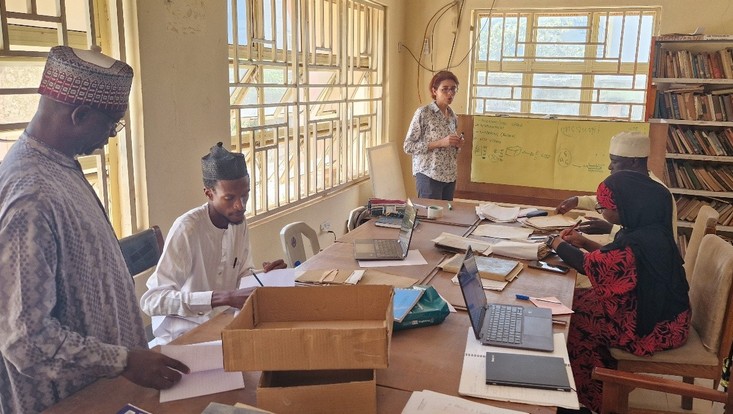Open access publicationHumanities-Centred Artificial Intelligence
8 October 2025

Photo: Gwen Melzer
The ‘Humanities-Centred Artificial Intelligence’ workshop is a forum that brings together researchers from the humanities and computer science to explore how artificial intelligence can both benefit and learn from the humanities. The proceedings of the 5th edition of this workshop are now available.
Held in Potsdam from 16–19 September 2025 as part of the 48th German Conference on Artificial Intelligence (KI 2025), this year’s workshop on ‘Humanities-Centred Artificial Intelligence’ (CHAI) showcased several innovative projects. Highlights included new methods for tracing how people were trained in various occupations from the 1930s to the present using digital tools, and fresh insights into the technical, legal, and ethical challenges of publishing chatbots for public use. Another featured contribution demonstrated how advanced AI can help recover faded handwriting in historical documents, illustrating the importance of close collaboration between technical experts and humanities scholars.
This year, CHAI took place in close coordination with the Formal and Cognitive Reasoning (FCR) workshop, bringing in additional perspectives on how both humans and AI cope with uncertainty, adapt to new information, and interact with each other. From developing social robots with personalised memories to improving how AI algorithms can simulate human-like reasoning and emotions, the workshop highlighted significant advances on both the technical and conceptual fronts.
CHAI 2025 was organised by Sylvia Melzer, Stefan Thiemann, Hagen Peukert, and Magnus Bender (Aarhus University). The newly published proceedings of the workshop provide open access to the latest developments at this dynamic crossroads of research.


